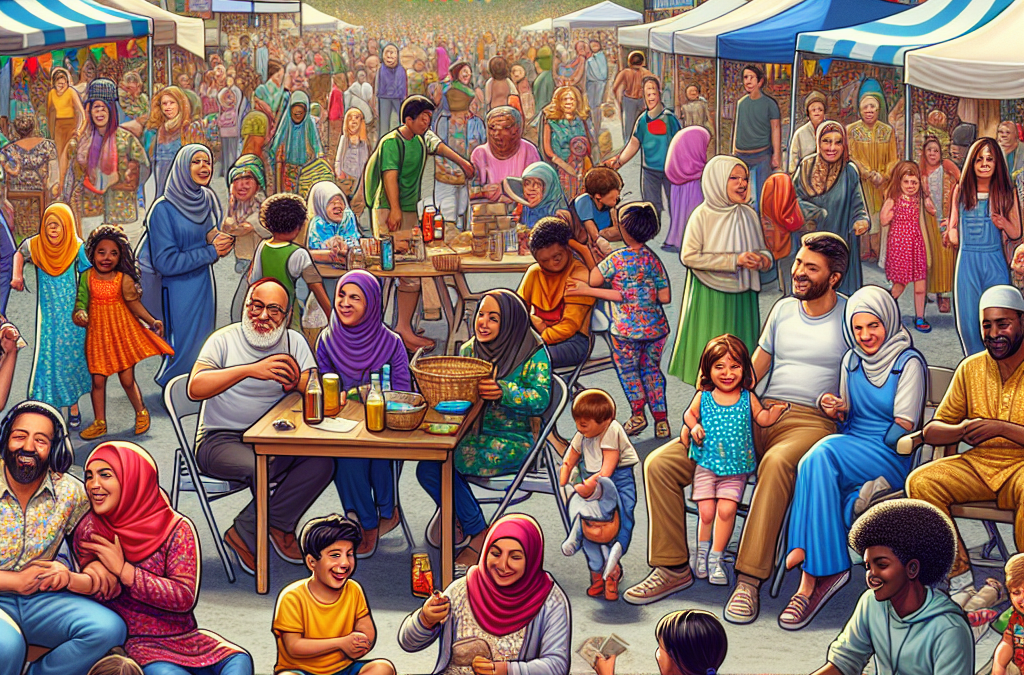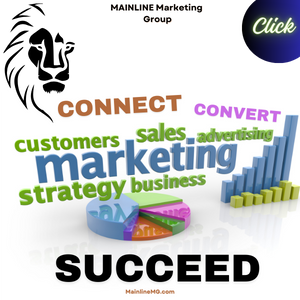Building Relationships with Local Businesses
Networking Opportunities
One of the most exciting aspects of engaging the community through events is the chance to network with local businesses. In my experience, I’ve found that simply showing up and introducing yourself can go a long way. This initial contact lays the groundwork for partnerships that can benefit both your organization and the businesses in your area.
When planning an event, consider inviting local businesses to contribute. This could be in the form of sponsorships, product donations, or simply setting up a booth. Not only does this provide them with exposure, but it also enriches the event experience for attendees who appreciate the local flavor.
Moreover, collaborating with local businesses establishes a sense of community ownership. When businesses see their direct contribution to an event, they’re more likely to invest in future activities, ensuring ongoing engagement.
Co-hosting Events
Another fantastic way to engage with local businesses is by co-hosting events. Trust me when I say that sharing the planning and execution responsibilities can alleviate stress and yield amazing results. For example, I once partnered with a nearby café for a community coffee morning. The synergy was incredible!
Co-hosting allows for resource sharing—everything from venue space to promotional materials. Both parties benefit from broader promotional reach, and you get the chance to tap into each other’s customer bases, creating a win-win scenario.
Don’t forget to keep the lines of communication open throughout the process. It strengthens the partnership and often leads to innovative ideas as each side contributes their unique insights and expertise.
Support Local Initiatives
Being involved in local initiatives is a great way to engage the community even further. Whether it’s sponsoring a local sports team, supporting a charity, or participating in a neighborhood clean-up, I’ve seen how these actions resonate deeply with residents.
When you show that you care about the community’s growth and welfare, people notice. It builds loyalty and rapport, making it easier to rally them around future events. Plus, it’s just a genuinely good thing to do!
So, don’t hesitate to roll up your sleeves and get involved. The more you give to your community, the more they’ll want to participate in what you’re doing.
Creating Memorable Events
Themed Events
Let’s be real; everyone loves a good theme. In my experience, themed events are not only fun but they also give attendees a reason to dress up and engage more fully. Think about what resonates with your community—seasonal celebrations, cultural festivals, or even quirky topics!
For instance, I organized a ‘90s night event once. People came decked out in their finest throwback attire, and it sparked connections based on shared experiences from that era. It’s amazing how nostalgia brings people together!
Incorporate activities, music, and decor that reflect the theme. This kind of attention to detail leaves lasting impressions and encourages social sharing. People love to post about their fun experiences on social media!
Interactive Experiences
Engaging people means involving them, and interactive experiences do just that. I’ve had great success with activities like workshops or contests that encourage participation rather than passive observation.
For example, hosting a cooking competition at one of my events not only drew big crowds, but it also created a fun, competitive atmosphere that brought strangers together. Participants shared ideas and engaged with one another, creating a sense of community.
Make sure to provide resources and guidance, so everyone can comfortably participate. The joy of getting involved will often keep attendees coming back for more.
Feedback and Iteration
After each event, I can’t stress enough the importance of gathering feedback. This phase is crucial! It helps you understand what worked and what didn’t. Feedback gives you insight directly from your attendees, which is like striking gold!
Utilize tools like surveys or casual conversations as guests leave. People appreciate being asked for their opinions, and it builds rapport for future events. Plus, you’ll get valuable advice on how to improve.
Incorporate this feedback into your next planning cycle. Showing that you listen and iterate makes participants feel valued and more likely to support future events.
Showcasing Local Talent
Artist Spotlights
We have so much talent right in our communities! From musicians to painters, showcasing local talent is a fantastic way to draw in crowds. I’ve hosted events where local artists displayed their work, and the response was overwhelmingly positive.
People love supporting their neighbors, and it gives them someone to root for. Plus, bringing in entertainment creates a lively atmosphere. It becomes a gathering spot for creativity and inspiration!
Encourage the artists to be present during the event. It allows them to connect with attendees, answer questions, and even sell their work. Reciprocity in support creates lasting community bonds.
Collaborative Performances
Think of hosting collaborative performances that blend various art forms. Picture local musicians teaming up with dancers or poets for an unforgettable show! I’ve seen these mixed events attract diverse crowds, each interested in the different expressions of art.
Scheduling open mic nights can provide budding local artists with a platform to showcase their skills. Imagine the talent that might be hidden away! This fosters a nurturing environment where creativity flourishes.
Encourage your audience to join in! Everyone loves being part of an experience, and giving them a chance to shine helps to strengthen those community ties further.
Celebrating Local Heritage
Heritage is a vital part of any community’s identity. Crafting events that celebrate your local history and traditions gives people a sense of belonging. It’s a beautiful way to recognize the roots of your area.
Consider organizing events around local history, festivals, or holidays. Invite historians or community elders to share stories and experiences. It not only educates younger generations but also fosters appreciation across the board.
Engaging with heritage creates strong emotional ties within the community. Celebrating shared history can be a motivating factor for more residents to participate in local events. This sense of pride builds continual engagement.
Promoting Events Effectively
Utilizing Social Media
Social media is a powerful tool for promoting events, and it’s right at our fingertips! I always make sure to create engaging posts that resonate with my audience, including eye-catching graphics and countdowns to the big day.
Encourage your community to share your posts—word-of-mouth works wonders! You can even create event hashtags to track and encourage sharing. Trust me, it creates a buzz!
Live streaming parts of the event can also be a game-changer. It gives those unable to attend a taste of what’s happening, potentially encouraging them to join in future activities.
Targeted Advertising
Don’t underestimate the power of targeted advertising! Platforms like Facebook and Instagram allow you to focus your promotional efforts based on interests, demographics, and location. It’s like having a direct line to your ideal audience!
Creating engaging ads that speak to the heart of what your event is about can drive attendance. Include calls to action that encourage immediate sign-ups or shares, creating excitement in advance.
If your budget allows it, consider working with local influencers to widen your reach! They have established trust within their communities and can attract individuals who might not have seen your ads otherwise.
Engaging Email Newsletters
Email marketing remains one of the most effective ways to communicate with your community. I’ve had great success in sharing upcoming events through newsletters filled with vibrant images and engaging copy that captures attention.
Make sure to include clear calls to action for registration. Providing value, such as exclusive discounts or early bird registration, can boost engagement and make recipients feel special.
Ask for feedback on the content within these newsletters. It might provide insights on what your audience is interested in, leading to better engagement over time.
Fostering Lasting Community Engagement
Ongoing Communication
Engagement shouldn’t just stop after the event is over! I’ve learned that ongoing communication is key to sustaining community interest. Regular check-ins or follow-up emails help to keep the spirit alive.
Develop community forums or groups where people can continue discussions and share ideas. This expands relationships built during events and fosters a sense of belonging.
Always be open to suggestions. This shows that you genuinely value the community’s input and want to build together. Individuals are more likely to engage when they feel included.
Recognizing Contributions
In my experience, recognizing contributions to events goes a long way. Whether it’s public thank-yous during the event or shoutouts on social media after, people love to be appreciated.
Consider implementing a “community hero” recognition program where you spotlight volunteers or local businesses that help in various ways. This not only promotes goodwill but increases appreciation for local efforts.
Make sure this recognition is visible and celebrated. People are far more likely to remain engaged when they feel valued for their efforts. Celebrate together!
Creating Future Opportunities
Finally, it’s vital to present opportunities for future collaboration. After the events, I focus on discussing what’s next. Invite community insights on upcoming activities and provide a clear path for involvement.
Also, consider forming committees or planning groups that continue to meet and brainstorm. It empowers community members to take charge and creates shared responsibility.
Remember, the more opportunities provided, the more likely individuals will stay engaged. Building a culture of inclusion inspires everyone to participate actively!
FAQs
1. Why is engaging the local community through events important?
Engaging the local community fosters connections, builds relationships, and creates a sense of belonging. It can lead to stronger support for local initiatives, businesses, and a more vibrant community culture.
2. How can I involve local businesses in my events?
Reach out to local businesses for partnerships. You can offer them booth space, sponsorship opportunities, or collaborative events that benefit both your organization and theirs!
3. What types of events resonate well with audiences?
Themed events, interactive experiences, and events showcasing local talent tend to draw interest. Consider what’s relevant to your community and create engaging formats around those themes!
4. How can I promote events effectively?
Use social media, targeted advertising, and email newsletters. Engaging content, clear calls to action, and incentives can create buzz and drive attendance.
5. How do I keep the community engaged after the event?
Ongoing communication, recognition of contributions, and presenting future opportunities are crucial. Keeping the conversation alive fosters a continuous sense of community engagement.


